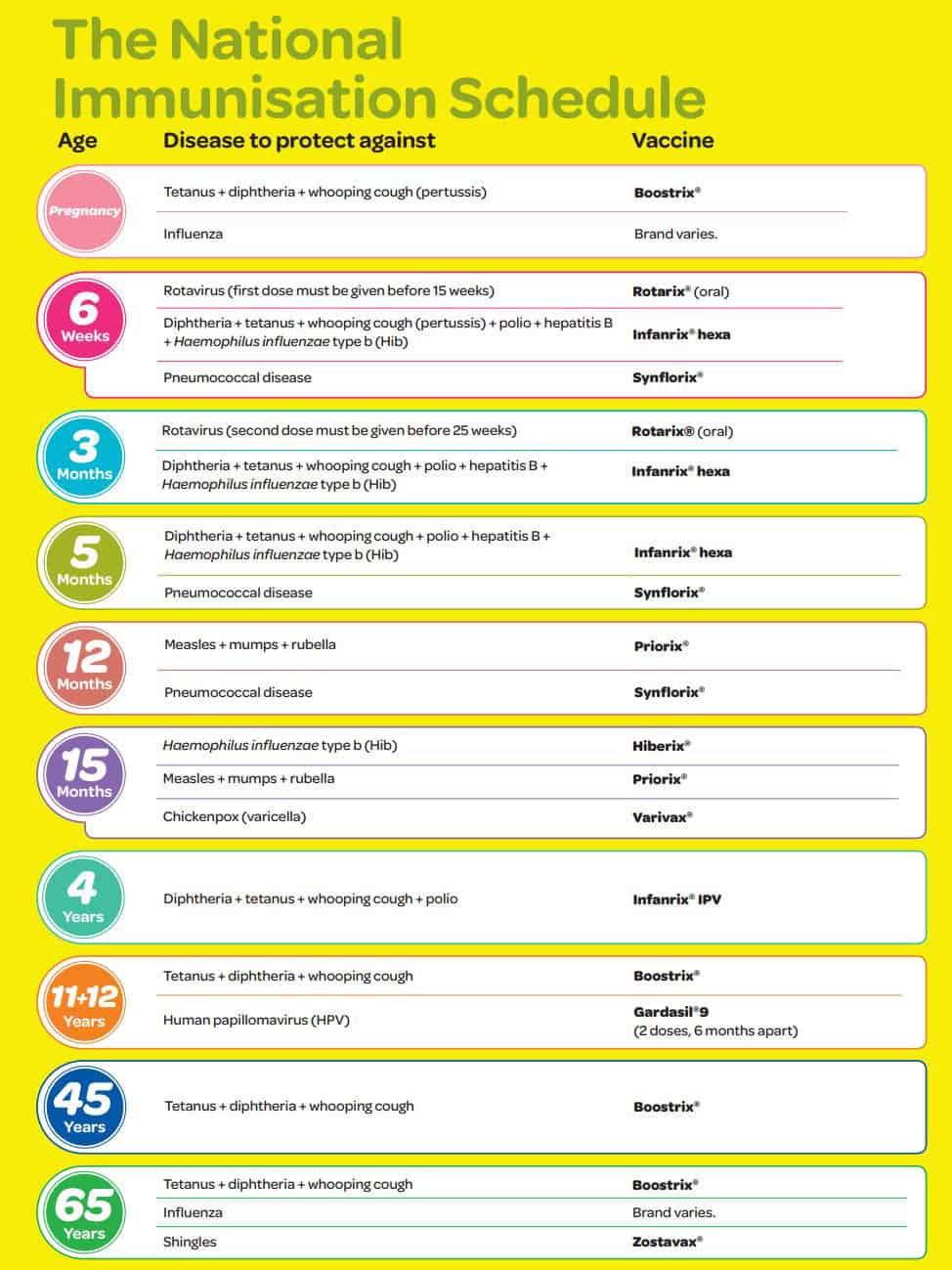Welcome to Your Guide on the New Zealand Vaccine Schedule for Parents!
G’day, awesome Kiwi parents! Are you looking to wrap your head around the New Zealand vaccine schedule? You’ve come to the right place! Our comprehensive guide is brimming with insightful tips and essential information to help you navigate your child’s immunization journey with ease and confidence.
The Importance of Immunization in New Zealand
First things first, let’s chat about why vaccines are such a big deal. Vaccines are your little one’s frontline defense against some serious diseases. By following the recommended New Zealand vaccine schedule, you’re not just protecting your kids; you’re also contributing to the health and well-being of your community, preventing the spread of illness.
Understanding the Schedule
Now, let’s get to the nitty-gritty! The New Zealand vaccine schedule is designed to protect your children at the best ages, from pesky bugs that can cause harmful, sometimes life-threatening, illnesses. The schedule is comprehensive and includes vaccines from birth through to adolescence.
It’s organized by the Ministry of Health and delivered free of charge through the National Immunisation Programme, so you can breathe easy knowing that your child is covered without denting your wallet.
Vaccines from Birth to Six Weeks
Your tiny tot’s first vaccine is for tuberculosis, which is given at birth if your child is considered at high risk. Then, at six weeks, your baby will get their first round of immunizations to protect against several diseases.
- Hepatitis B (HepB) – This vaccine protects against hepatitis B, a serious liver infection.
- Diphtheria, tetanus, and pertussis (DTaP) – This combo vaccine safeguards your child against three bacterial diseases: diphtheria, tetanus, and whooping cough.
- Haemophilus influenzae type b (Hib) – Hib vaccination prevents Haemophilus influenzae type b which can cause serious problems such as meningitis.
- Polio (IPV) – The inactivated poliovirus vaccine is critical in maintaining New Zealand’s polio-free status.
- Pneumococcal (PCV) – This vaccine protects against pneumococcal bacteria that can cause pneumonia, meningitis, and blood infections.
- Rotavirus (RV) – The rotavirus vaccine can help protect against severe rotavirus diarrhea, a common illness among infants and young children.
It might seem like a lot for a little one, but these vaccines are carefully designed to be safe and effective for children at this age. Plus, they pave the way to a healthier, happier future!
Vaccines at Three and Five Months
At three and five months, your bundle of joy will receive the second and third doses of several vaccines given at six weeks, plus additional doses of other vaccines to maintain a strong immune defense.
- Hepatitis B, Diphtheria, tetanus, and pertussis, Haemophilus influenzae type b, Polio, and Pneumococcal vaccines are continued.
- Rotavirus vaccine.” is also administered, typically as a two-dose series.
Following these immunizations is critical for building up your child’s immunity and ensuring the effectiveness of the vaccines.
Immunizations at Six Months to One Year
The six-month mark is an important one in the New Zealand vaccine schedule. While the previous vaccines are still fresh in your kiddo’s system, a few more are added to boost their protection before their first birthday rolls around.
- Hepatitis B – The final dose of the hepatitis B vaccine is generally given at six months.
- Diphtheria, tetanus, and pertussis, Haemophilus influenzae type b, and Polio – The 4th dose for these vaccinations is essential for ongoing protection.
- Pneumococcal – Another round of the pneumococcal vaccine continues the protection against dangerous bacterial infections.
Keep in mind, maintaining your cool when it’s time for vaccinations can help your little one stay calm too. The health professionals administering these shots are wizards at making the process as quick and comfy as possible!
Navigating Vaccines from One Year Onwards
As your child grows, the vaccine schedule evolves to match their changing needs. Their immune system gets stronger, and they are introduced to new environments, like daycare or preschool, where exposure to different germs can occur.
Vaccines at twelve months, fifteen months, and four years include boosters and additional immunizations like the MMR (measles, mumps, and rubella vaccine), which are critical to protecting not just your child but the community at large from outbreaks.
Stay tuned with us as we continue to break down each vaccine and when your child will need them. We’ll also provide helpful tips on keeping track of immunizations and what to expect at each appointment. Taking care of your little kiwi’s health journey is a breeze when you’ve got the right information, and we’re here to make sure you have it all!
Remember, immunizations are a key part of keeping your child healthy, so mark your calendar and let’s keep those appointments together! With every little jab, you’re giving your child a shot at a healthy future – and that’s something to smile about. Stay with us as we carry on exploring the wonders of the New Zealand vaccine schedule together.

5 Things Parents Should Know in Preparing for New Zealand Vaccine Schedule
Feeling a bit nervous about your little one’s upcoming vaccines? No worries! Here are five key things to keep in mind that will help you prep them (and yourself) for their immunization schedule:
- Understand the Vaccines – Learn about the vaccines that are part of the New Zealand immunization schedule. This knowledge can help alleviate any concerns you might have and allow you to explain to your child what to expect in simple terms, if they’re old enough to understand.
- Keep a Vaccination Record – Make sure to maintain an up-to-date personal health record for your child. This record will come in handy not just for keeping track of immunizations but also in case of any future medical consultations or emergencies.
- Prepare for the Visit – Bring your child’s health record, any notification letters, and other relevant medical information. Dress your child comfortably in clothes that allow easy access to the upper arm and thigh, which is where injections are typically administered.
- Comfort Your Child – Be calm and supportive before, during, and after the vaccination. Little ones can pick up on your emotions, so if you’re relaxed, it can help them stay calm. Bringing a favorite toy or book can also be a great distraction.
- Know What to Do Post-Vaccination – Be aware of common reactions after immunizations, such as slight fever or fussiness. Your healthcare provider will give you tips on how to soothe any discomfort and advice on when to call if you have concerns about your child’s reaction to a vaccine.
Armed with this knowledge, you can make vaccine appointments a stress-free experience. And remember, you’re not just doing this for your kiddo’s health; you’re also keeping our beautiful New Zealand community safe and sound!
What’s Next in the Immunization Schedule?
As we continue this splendid journey through the New Zealand vaccine schedule, we’ll delve into the vaccinations for your child from the age of four up until they’re ready for school. Plus, we’ll cover what you need to know about booster shots and how to deal with the mixed emotions that might come up during vaccination times.
Ensuring your child’s immunization schedule is up to date gives them the best chance to thrive and enjoy the wonders of growing up in Aotearoa. Whether it’s splashing in the waves or climbing the majestic Southern Alps, your child will be prepared to explore and enjoy all that our stunning country has to offer!
So, strap in and keep this guide handy. Together, let’s make sure our tamariki are hearty, strong, and most importantly, healthy! Join us next time as we peel back more layers of the New Zealand vaccine schedule, giving you all the info you need to be a vaccine schedule whiz!
In the meantime, if you have any questions about upcoming vaccines or want to share your experiences and tips with fellow parents, don’t hesitate to reach out to your GP, local immunization clinic, or parenting groups. The more informed and connected we are as a community, the healthier our kids will be. Cheers to that!
See more great Things to Do with Kids in New Zealand here. For more information see here
Disclaimer
The articles available via our website provide general information only and we strongly urge readers to exercise caution and conduct their own thorough research and fact-checking. The information presented should not be taken as absolute truth, and, to the maximum extent permitted by law, we will not be held liable for any inaccuracies or errors in the content. It is essential for individuals to independently verify and validate the information before making any decisions or taking any actions based on the articles.




